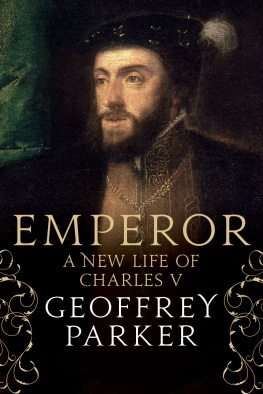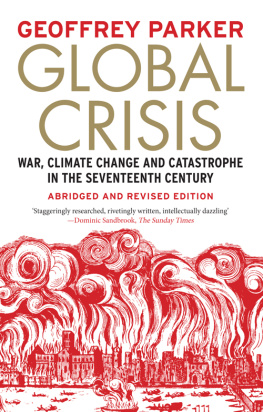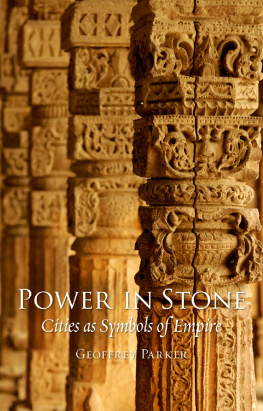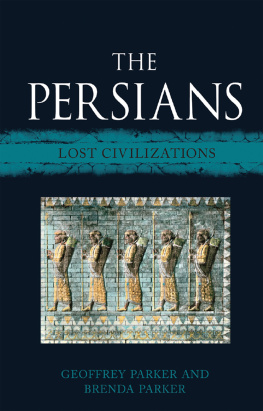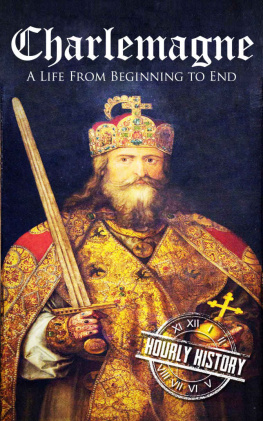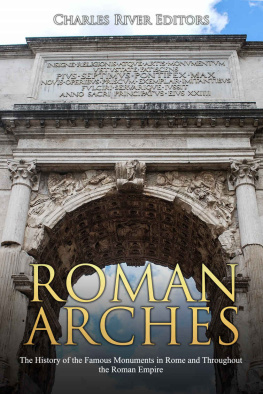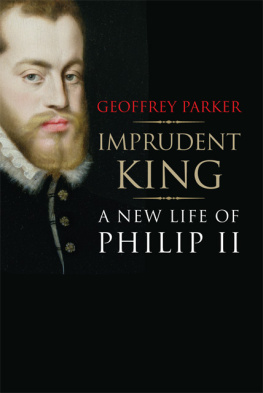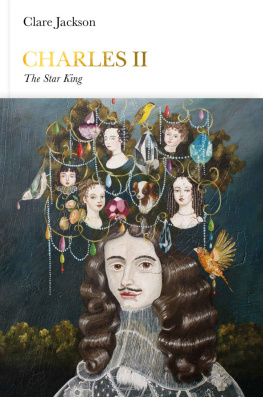EMPEROR

Published with assistance from the foundation established in memory of Oliver Baty Cunningham of the Class of 1917, Yale College.
Copyright 2019 Geoffrey Parker
All rights reserved. This book may not be reproduced in whole or in part, in any form (beyond that copying permitted by Sections 107 and 108 of the U.S. Copyright Law and except by reviewers for the public press) without written permission from the publishers.
For information about this and other Yale University Press publications, please contact:
U.S. Office:
Europe Office:
Set in Minion Pro Regular by IDSUK (DataConnection) Ltd
Printed in Great Britain by TJ International Ltd, Padstow, Cornwall
Library of Congress Control Number: 2019935200
ISBN 978-0-300-19652-8
A catalogue record for this book is available from the British Library.
10 9 8 7 6 5 4 3 2 1
To my grandchildren, Cameron, Sienna and Cordelia
CONTENTS
PART III RULER FROM THE RISING TO THE SETTING
OF THE SUN
IV. Infanta Isabel of Castile, daughter of His
Majesty the emperor
PREFACE
Does the world really need another book about Charles V, ruler of Spain, Germany, the Netherlands, half of Italy, and much of central and south America? The emperor himself composed his memoirs; hundreds of biographies of him have appeared in dozens of languages; WorldCat lists over 500 books published so far this century with Charles V in the title. Nevertheless, no work is ever perfect. The emperor composed his triumphalist autobiography in 1550, while at the height of his powers, and several of the lives are partisan (even some nineteenth- and twentieth-century biographers used his achievements for ideological ends).
Charless modern biographers belong to one of two tribes: those who complain that their subject left too few records to allow the reconstruction of an accurate portrait, and those who protest that he left too many. In 2003, Scott Dixon, a member of the first tribe, declared that Charles left us little trace in the records of what he was really like... Of the many thousands of letters dispatched from his desk, very few make any mention of personal details. The following year, Harald Kleinschmidt made a similar claim: There is an abundance of texts bearing Charless name. But he never saw most of these and among the minority of letters that he did write with his own hand are some which do not reflect his own thoughts but those of his advisers.
Karl Brandi, author of a two-volume biography of Charles, belonged to the second tribe. Not for many centuries, he wrote in 1937, could any prince compare with him in the number of revealing documents which he left behind. A few years later, Federico Chabod went even further and claimed that Charles V left us more holograph documents than any other ruler in History. In 1966, Fernand Braudel argued that previous historians failed to reconstruct Charless thoughts, his temperament and his character mainly because the surviving sources are too abundant. Looking for the emperors personality amid the mass of papers, he concluded, is like looking for a needle in a haystack. In 2002, Wim Blockmans concurred: The body
Impossible? Certainly, the surviving sources are massive. Charles signed his first letter at age four (
Although he never crossed the Atlantic, Charles also left a documentary mark on his American dominions. The viceroy of Mexico issued almost 1,500 orders in the emperors name in 1542 and 1543 alone, many of them in response to a direct imperial order. Some of his warrants (cdulas reales) gained iconic status because they legalized new Mexica settlements (altepetl) and became coveted foundational documents of which copies were still made in the 1990s. Moreover, since in Pre-Hispanic Mexico, the founding of the various altepetl took place under the will and protection of the gods, Charles acquired an honoured place among the panoply of deities in several of the communities he founded.
The emperor strove to achieve immortality in more conventional ways. He sat for portraits, sponsored histories, commissioned works of art, built palaces, and appeared in propaganda spectacles (notably urban entries: ). One bribed a guard to detach the tip of one of his fingers as a souvenir although this vandalism belatedly proved a boon because forensic examination of the detached digit, now kept in a special receptacle, provided two pieces of important medical evidence: the emperor had suffered from chronic gout, just as he always complained, and he was killed relatively swiftly by a double dose of malaria (Appendix II).
Arma virumque cano (I sing of arms and a man): in an important article about the perils associated with writing the life of the emperor, Heinrich Lutz used the opening words of Virgils Aeneid (a text familiar to Charles) to underline the need for his biographers to focus on those matters that absorbed his time, energy and resources above all on war and preparing for war, both because hostilities took up so much of Charless reign and because contemporaries noted that he was happiest on campaign and with his army. Lutz argued that other developments, even the Renaissance and the Reformation, should appear only as and when they mattered to Charles, and that they must always be viewed through his eyes.
Bearing in mind Lutzs strictures, this biography deploys the available sources, from documents to digits, to illuminate three key issues:
How Charles took the crucial decisions that created, preserved and expanded the worlds first and most enduring transatlantic empire.
Whether Charless policy failures arose from structural faults or from personal shortcomings: could a monarch with superior political skills have done better, or had circumstances created a polity too big for its own good and impossible to defend? In modern parlance, does agent or structure explain the failure to pass on his empire intact?
What was it like to be Charles? While writing about one of Charless role models, Alexander the Great, Plutarch (one of Charless favourite authors) noted that The most glorious exploits do not always furnish us with the clearest discoveries of virtue or vice in men: sometimes a matter of less moment, an expression or a jest, informs us better of their characters and inclinations. This biography draws on many such unscripted but revealing episodes.
Inevitably, the available sources are uneven. Like every other human being, Charles slept, ate, drank and performed other bodily functions every day, but they left a documentary trace only when they caused a problem (he could not sleep; he vomited; he excreted hot piss; the pain from his haemorrhoids made him cry like a baby). He also spent part of every day at prayer, he regularly attended church services, and each Holy Week he secluded himself in a monastery where he refused to transact any public business but historians have no idea what else he did at these quiet times unless something unusual happened (he fainted during a church service and lay unconscious for over an hour; he retired to pray or confess at an unusual time, such as just before or just after making an important decision).
Moreover, as Charles lamented in the confidential instructions he composed for his son and heir in 1543, some political decisions are so impenetrable and uncertain that I do not know how to describe them to you because they are full of confusions and contradictions. He made at least one effort to clarify everything. In November 1552 his valet Guillaume van Male confided to a colleague that the emperor had just ordered him to:
... close the doors to his chambers and made me promise to maintain the utmost secrecy about the things he was about to tell me... He held back nothing. I was stunned to learn what he told me. Even now I shudder when I think of it and would rather die than tell anybody but you. Now I can write freely because the emperor sleeps, it is the dead of night, and everyone else has left.
Next page
